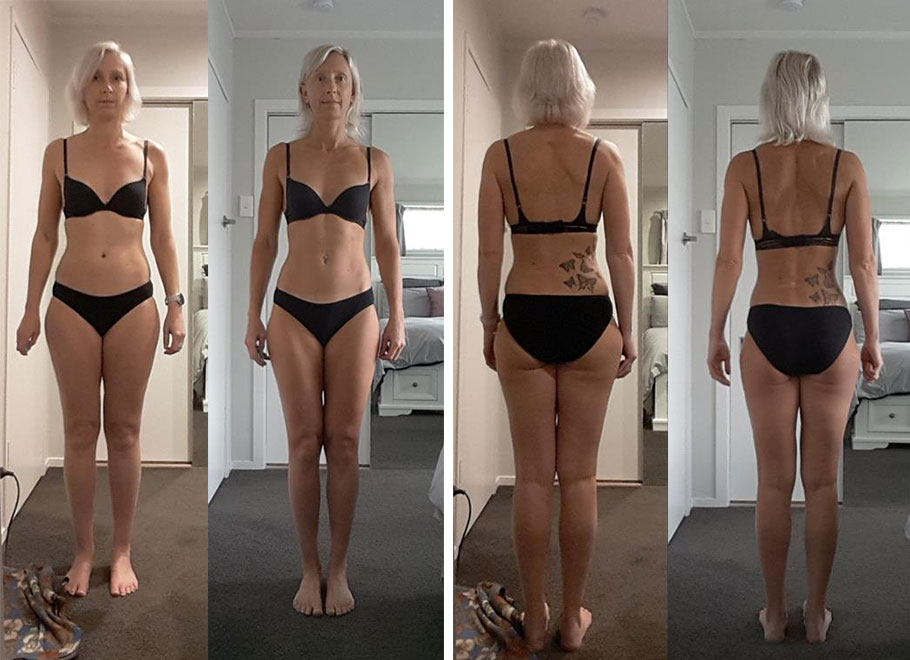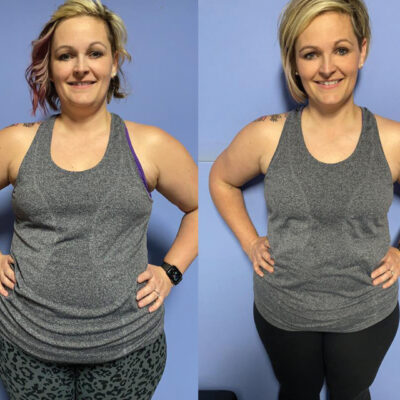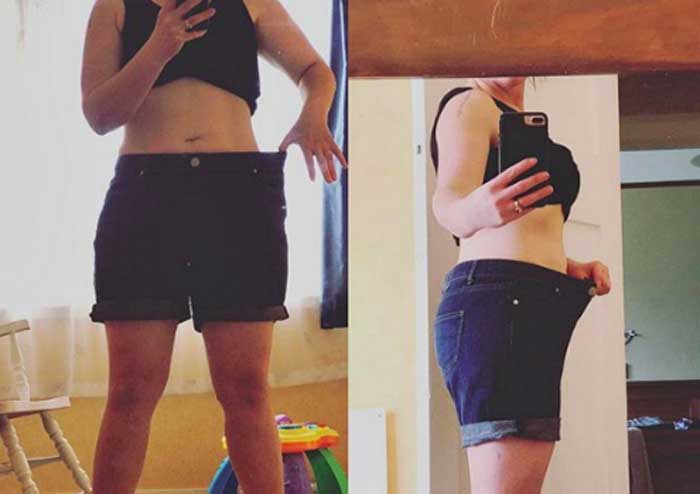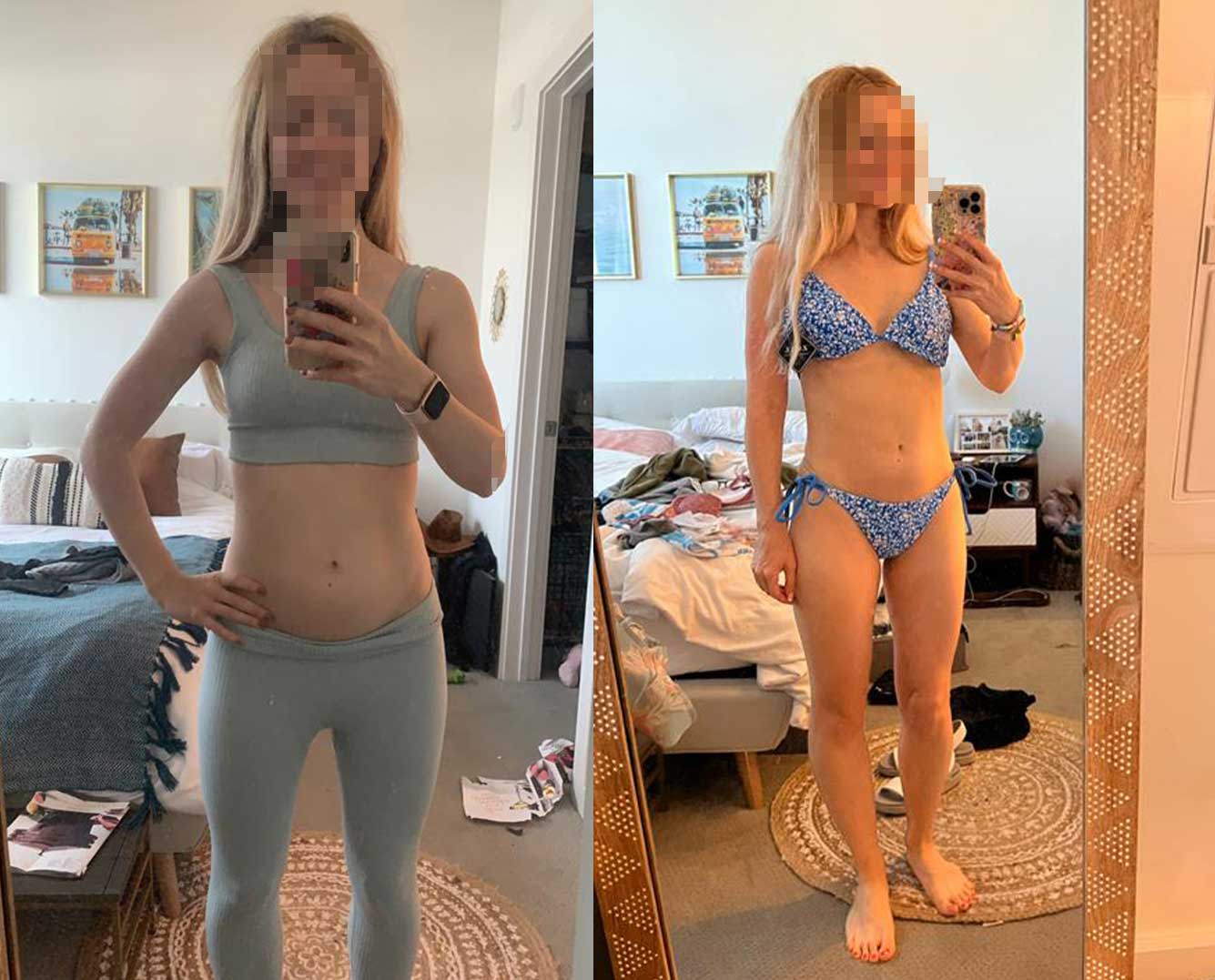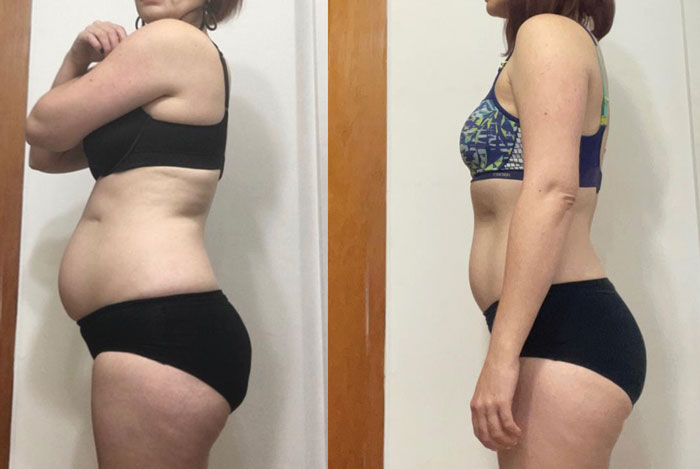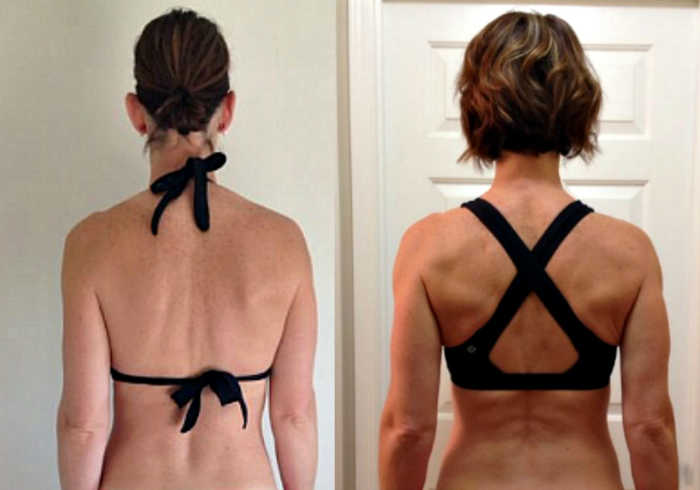Why is it so hard to lose weight and keep it off? Why do you plateau or worse yet, rebound? It’s because your body defends itself against weight loss. That’s right – your body actually works against your efforts to lose weight.
But there’s something you can do about it.
If you want to avoid weight loss plateaus and rebounds, you’ve got to first understand why your body senses weight loss as a threat.
Think of plateaus and rebounds as your body defending itself against weight loss.
Why We Plateau and Rebound
When you diet and lose weight your body undergoes changes to counteract the weight loss. Basically, your body works against you and tries to maintain a certain “set point” of fatness or a baseline body weight.
It goes like this. To lose weight you need to expend more energy (through exercise or other activity) than you take in (through eating). After a while, this creates a situation where your body tries to do the opposite. It starts changing in such a way that it tries to conserve energy and increase energy intake to stop you from losing weight.
These changes happen because your body senses a threat to survival.
These adaptations explain why we hit plateaus but also why we rebound so quickly after losing weight – because your body is trying to keep your weight at a certain set point to allow you to survive and to reproduce. If you are starving, which is what your body senses when you are losing weight, your chance of reproducing goes down (because you need a certain amount of body fat for fertility). So when you try to lose weight, your body adjusts to help you maintain a certain level of body fat.
Here are some of the changes in your body when you start losing weight:
1. You burn less calories. That’s right. Even if you try to exercise more, you may end up burning less calories than if you weren’t dieting because your body decreases energy expenditure when food is scarce. So you burn less calories than you normally would from regular daily activities and from your basic body functions (your basal metabolic rate, which includes things like breathing and regulating body temperature, accounts for a significant amount of the calories you burn daily). The amount of calories you burn from exercise also drops.
2. You get hungrier. When you lose weight, your body increases secretion of hormones that make you feel hungry and make it harder to stick to your diet.
3. It’s harder for you to stop eating. Leptin is a hormone that signals it is time to stop eating and that you are full. When you are dieting leptin output is decreased which encourages you to eat more.
4. You mess up your thyroid hormones, which negatively impacts your ability to lose weight, your mood and your energy.
5. Cortisol increases. Low calorie dieting and skipping meals elevates cortisol and makes it harder to burn fat, especially from your belly. Moreover, chronically elevated cortisol can negatively impact your muscle mass and metabolism (also leading to the skinny fat look).
Researchers call these changes “adaptive thermogenesis” and suggest they happen to restore our bodies to their baseline body weight. When these changes kick in depends on your genetics, your history of dieting, how hard you are now dieting, stress levels and a whole lot more. That’s why some people will plateau sooner or rebound more quickly than others.
Unfortunately, studies have shown that these changes persist long after you’ve lost weight, even up to a year. Even when you start eating normally again.
More About Rebounds and Fat Overshooting
Rebounds are even worse than plateaus. Shortly after you finish dieting your weight begins to creep up again and before you know it, you are even heavier than when you started dieting.
Studies have found that rebounds are more the rule than the exception.
In the research this is known as “dieting-induced weight gain” or “post-starvation obesity”. Not only do you rebound to your baseline weight after a diet, but it’s not uncommon to “overshoot” your previous weight and end up fatter than when you started dieting.
That means, if you don’t have a plan to prevent a rebound after you’ve lost weight, you are likely going to gain it all back. You’ve got to diet yourself out of your diet. No one tells you that when you buy into all these “lose weight quickly” plans and gimmicks. But your “diet after your diet” is important. At least, it is if you don’t want to end up fatter than when you started.
Learn more about reverse dieting: Reverse Dieting: Rebuilding Your Metabolism, Eating More And Staying Lean
Preventing Plateaus and Rebounds
It’s hard to prevent plateaus and rebounds but with the right approach you might be able to delay hitting a plateau and you can limit how much you rebound.
1. Use the smallest possible deficit to lose weight. This means you need to eat as much as you can when trying to lose weight so you decrease the magnitude of the metabolic adaptations we talked about above. If you want to learn more about how to do this I’ve written a whole ebook on the topic which you can download for free.
2. Get 25-30% of your calories from protein. Protein increases satiety so it will help combat some of the hunger you experience when losing weight and help you stick to your diet.
3. Take fish oil and get 7 to 8 hours of quality sleep. Some studies suggest fish oil and getting a good night’s sleep will help keep your hunger and appetite hormones in balance. In fact, just one night of bad sleep has been shown to throw these hormones out of balance and increase hunger. (Here’s a list of the top 10 fish oil supplements and if you are in the New Zealand this is a great fish oil you can get through the Female Fitness System’s store).
4. Use refeeds. Refeeds are usually done over a 24 hour period or over three to four days. During a refeed you temporarily increase your calories mainly from carbohydrates with the goal of increasing leptin and stimulating your metabolism. Refeeds are only for those who are strictly following their diets the rest of the time and have achieved a desired level of leanness.
5. Be realistic. Once you get to the point where you are leaner than most people, trying to get even leaner is probably not worth it unless you are a fitness competitor or model. Having six pack abs is not a normal state for your body and, as you’ve learned, your body treats abnormally low body fat as an extreme threat. So for most of us it will take extreme measures and dedication to get that six pack and it’s just not worth it, nor is it sustainable in the long run.
6. Make a plan to diet yourself out of your diet. Once you’ve hit your goal weight you can’t just start eating lots of calories again. To avoid a rebound, you need to keep dieting after your diet or “reverse diet”. Reverse dieting means systematically adding back in calories week by week in an attempt to rebuild your metabolism while minimizing any fat gain that might come with increased caloric intake.
Final Takeaways
After reading this article you’ll have a lot better idea of why dieting just doesn’t work.
Studies show that the more people engage in dieting, the more they gain weight in the long-term.
The cycle of dieting, losing weight and rebounding, ratchets your baseline weight up even higher, beyond the original weight. Many of you can probably relate – it probably wasn’t too hard to lose weight the first time you dieted but you found it a lot tougher the second, third and especially the fourth time around. That’s why it’s so important to stay on top of your weight and take any weight gain seriously. Especially if you are one of those women who regularly puts on weight during the winter or over the holidays. You might think – what’s the harm in a relaxing for a few weeks and gaining a few extra kg?
The problem is that every year it will get harder and harder to lose that weight.
As a nutrition coach, I get discouraged by the number of women I see everyday who eat very low calorie diets and can’t lose weight. Usually it’s because they’ve been through this dieting cycle multiple times. If you are one of those women, I encourage you to find a coach who can help you start eating more and undo some of the damage you’ve done to your metabolism. If you start eating more and looking after yourself, you’ll be surprised at how your body responds.
Want some help with all this? Learn more about working with me and nutrition coaching here.
Related Articles
Maintaining Weight Loss – How To Keep It Off For Good
Reverse Dieting: Rebuilding Your Metabolism, Eating More And Staying Lean


